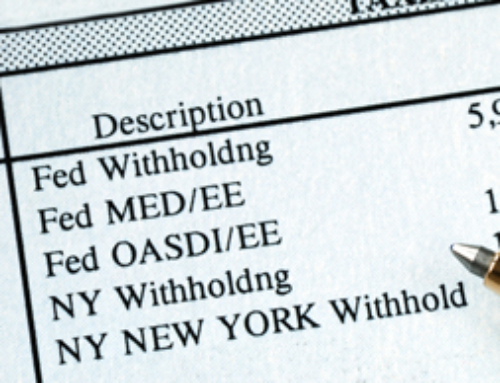 Sometimes you feel like a hoarder, watching piles of records, documents, tax returns and receipts grow precariously higher, higher, higher, until suddenly, whoosh! The whole thing collapses, burying you underneath.
Sometimes you feel like a hoarder, watching piles of records, documents, tax returns and receipts grow precariously higher, higher, higher, until suddenly, whoosh! The whole thing collapses, burying you underneath.
No! That’s just your recurring nightmare. Or is it? Actually, that was the Bones season finale!
But when it comes to tax paperwork, taxpayers are rightly confused about what you can toss and what you should keep in order to stay in good standing with the IRS.
The two most common tax questions I get are:
1) How long shall I keep my tax records?
2) Which tax records must I keep?
TaxMama says to keep all tax records forever, except, you’d probably run out of room at some point in the not too distant future.
Barring that, these are the tax records to keep:
- All tax returns. Keep a copy of each forever. Keep both a paper copy and a digital copy. In case one is destroyed, you have the other. Why? If the IRS or your state come along someday saying you never filed a tax return for any year, simply pull it out and send them a copy. You can prove the statute of limitations for audit and collections is closed for that year.
- Copies of home purchase documents, vehicle purchase documents and any other major assets. Keep those as long as you own the asset, plus at least five – seven years. If you rolled over the sale of the asset (like a home, car or other real estate) to the next property, keep the records for as long as you own the replacement property – plus five – seven years.
- Copies of loan documents (all kinds). Keep copies of the original document and refinance documents until five – seven years after the loan is paid off. Consider keeping at least a digital copy of the proof a loan was paid off forever, just in case someone comes along someday and says you still owe the money.
- Copies of cancelled checks. Anything related to long-term assets or loans, like those above, keep with those documents, as long as you keep those documents. Anything else? If it’s not related to a tax return or a business, or a warranty, you can probably dump anytime the fancy strikes you.
- Bank statements. Keep for five to seven years. There is always a need for them.
- Life insurance policies. Keep forever or until five to seven years after they are cashed in.
- Other insurance policies. Keep for five to seven years after they expire
Anything else? Use your judgment. Generally, you can toss everything after five to seven years.
When it comes to digital copies of tax records, the best version to keep is a PDF file (Adobe’s Portable Digital Format). It seems to be the most consistently available file format. Older files can still be opened with the current version of Adobe. The Adobe Reader can be downloaded for free at Adobe.com.
Remember to shred your documents and tax records. If you don’t want to stand there all week destroying years worth of tax records, call a shredding service. They can destroy your life in a half hour or less.
Beware! TaxMama’s law of tossed documents: The minute you discard it, no matter how long you have kept it – you will need it. Urgently.
—
Eva Rosenberg, EA is the publisher of TaxMama.com , where your tax questions are answered. Eva is the author of several books and ebooks, including Small Business Taxes Made Easy. Eva teaches a tax pro course at IRSExams.com.






